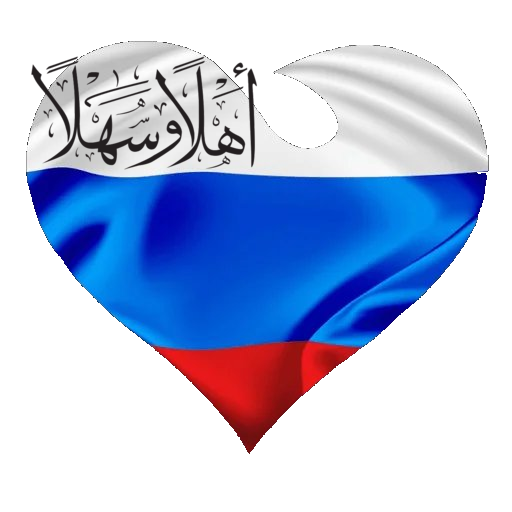The word Katyusha, diminutive of the name Ekaterina, a song between the most famous songs in Russia and commonly recognized as also being the name of the first Soviet rocket launcher weapon.
For travellers, Russia invariably arouses great interest, which is why millions of tourists visit it every year. They want to see first-hand the homeland of Alexander Pushkin, Fyodor Dostoevsky and Yuri Gagarin. Admire the Bolshoi Theater ballet and make sure bears really do roam Red Square. That dogs use the Moscow metro like humans (Western myths about Russia).
Also, foreigners associate Russia with matryoshkas, balalaikas, felt boots and samovars. But, we cannot forget one of its musical symbols – the song “Katyusha”. A song that, as soon as it appeared, immediately gained such popularity that it was ranked among the national treasures of the Russian people.
History of the Katyusha song
In 1938, a talented poet Mikhail Isakovsky, who began his creative career at an early age in his native Smolensk region; he had been working successfully in Moscow for seven years.
Birth of poetry Katyushka
Songs based on his poems, mostly devoted to rural themes, immediately received national fame. They were sung with success throughout the country, both by professional artists and by amateur artists.
Mikhail Vasilyevich approached the creation of his texts very responsibly, and therefore slowly worked on them. However, the poet wrote two quatrains in one go about a girl named Katyusha (Katia or Ekaterina); who, going out to the bank of the river, sang a song about her lover.
Later, the creation of the text slowed down, as Isakovsky could not decide where to direct the plot of this composition further. However, the poet did not become obsessed, but simply postponed the poems until better times. He was suddenly visited by a special inspiration again, this happened at the beginning of 1938.
Pressures
A few months later, or rather, in April 1938, there was a meeting that turned out to be fateful for the future famous song. In the literary department of the Pravda newspaper, the poet Mikhail Isakovsky met the composer Matvey Blanter. Matvey who not only held the position of artistic director of the State Jazz Orchestra of the USSR; but he also established himself as a composer of popular songs.
In a conversation, the composer asked the popular poet if he had any poems that he could set to music for a new song.
It was then that Mikhail Vasilievich remembered his unfinished poems about a girl named Katyusha. With a reservation about the incompleteness of the poetic text, he wrote eight composed lines on a sheet of paper and handed them to Blanter.


The composer, having read the quatrains, immediately felt in them an unusual melodious intonation. However, while he was composing a tune, he went through many options until he found, in his opinion, one that was worthy of attention.
A month later, Blanter saw Isakovsky again, and at the meeting he informed the poet that the music for his poems had been written and the song was good, and therefore the matter had to be completed, that is, it had to be added words.
Mikhail Vasilyevich promised to complete the composition as soon as possible, but he did not keep his promise; in that last month of summer he went to rest in the Crimea.

First version of the song
However, Matvey Isaakovich was very persistent and, knowing of Isakovsky’s place of stay, he caught up with him in Yalta. Blanter informed the poet that the composition had already been announced in the program of the first concert of the State Jazz Orchestra and in this way he set a deadline of two days, he indicated that the song should be ready immediately.
For Mikhail Vasilyevich, who did not like being pressured and forced to work, these were difficult days. However, he provided the composer with six variants of the final verses of the song, later called “Katyusha”, at the appointed time.
Matvey Isaakovich liked the version better, in which the girl Katyusha lovingly conveyed her greetings to the border guard guarding the Motherland.
Political situation at that time and the premiere of the song
Protecting the homeland from the invasions of enemies at that troublesome time, when the Japanese samurai constantly made provocative raids near Lake Khasan, and Spain was burning in the flames of civil war, was paramount, and therefore they could not go through high not even in a lyrical composition.
The premiere of the song “Katyusha”, as promised by Blanter, took place at the debut concert of the State Jazz Orchestra conducted by Viktor Knushevitsky in November 1938 in the Column Hall of the House of Trade Unions.
Composition was performed with such enthusiasm by twenty-two-year-old Valentina Batishcheva that the audience went wild and the applause did not stop, even asking the singer to perform the new song three times in a row.
The first recording of “Katyusha” was made in the year 1939, and as a result, the records were sold out due to high demand. Already at that time, the composition instantly gained such popularity and was sung in cities and towns, at pop music venues and festive family parties.

Interesting data
During the Great Patriotic War, the affectionate name “Katyusha” was given to the BM-13 salvo firearm, which caused the Nazis to panic.
Why was the rocket launcher called Katyusha?
There is no single version of why the formidable rocket launcher weapon began to be called so. There are several options that are considered the most justified.
- According to one of these versions, for the first baptism of fire, in July 1941, Captain Flerov’s calculation to destroy the accumulations of military equipment and enemy manpower stationed at the Orsha railway junction is located on a high mountain. A powerful burst of rockets was launched, when flying, the rockets emitted a sharp sound produced by a kind of plumage of the launched missiles. This fact caused heavy damage to the enemy, so impressed the soldiers that they just as enthusiastically compared what was happening with the song “Katyusha”.
- Another version according to which the legendary weapon of the second world war received a cute maiden name. It is possible that his name is related to the brand name of the manufacturer of the first machines, that is, the letter “K” for the Voronezh plant. Kominterna, as well as the “KAT” labels on the rockets used in them.
- Another version according to which the rocket launcher received the name “Katyusha” in honor of the song of the same name. Due to the secrecy of the BM-13, the command ordered soldiers to use the words “Play” or “Sing” instead of the commands “Fly” and “Shoot” when shelling enemy positions.
Blanter and Isakovsky’s song “Katyusha” during the Great Patriotic War was so popular that it became an informal symbol of the period of greatest difficulties for the nation.

Song text alterations
The text of the composition was altered by folklore according to different directions of the plot.
To the tune of “Katyusha”, the soldiers, in lines that were not quite perfect, but came from the heart, promised their loved ones to defend their Homeland without sparing their lives.
In the front-line alterations, they told about the courage of the Red Army soldiers, about the partisan movement, about the brave girls who, being nurses, pilots and snipers, heroically fought with the enemy together with men.
For example, one version of the song was dedicated to Katerina Pastushenko, a brave machine gunner who killed a lot of Nazis.
International versions of the Katyusha
After the war, researchers collected more than a hundred adaptations of the legendary song.
During World War II, in some countries the song “Katyusha” sounded like an anthem calling for the struggle for liberation against the fascist invaders.
Today, no one can say for sure how the Katyusha came to be in Nazi-ruled Europe, but according to one version, it was adopted from Soviet prisoners of war who escaped from Nazi camps and later fought in the Resistance.
In Italy
So, in Italy, following the example of “Katyusha”, the commander of the partisan detachment, twenty-five-year-old doctor Felice Cachone, in 1943 composed a patriotic song beginning with the words “The wind whistles.”
In Greece
The melody of “Katyusha” also formed the basis of the anthem of the participants of the National Liberation Front of Greece, which during World War II united various patriotic forces of the country in the fight against fascism, and the Bulgarian partisans used the song as password.
Spanish “Blue Division”
Incredibly, the variant reworkings of the song “Katyusha” were also sung by foreigners who fought on the side of Germany. Namely, the Spanish “Blue Division” had an unofficial march called “Primavera”, a modified version of a popular Soviet song. The Spanish heard the Katyusha when they reached the front line near Leningrad.
Creation of the museum in honor of the poet
In 1943, Mikhail Isakovsky received the Stalin Prize for several of his poetic works, including “Katyusha”. After the liberation of his native Smolensk region from the Nazis, the poet sent this reward to his compatriots for the construction of the House of Culture.
Initially, the residents of the small settlement Vskhody on the banks of the Ugra River installed a large rock and attached a copper plate to it with the image of a girl and the lines of the famous composition, and later they decided to organize the Katyusha Song Museum.
For almost forty years, the workers of the House of Culture, built at the expense of Mikhail Vasilyevich, collected everything related to the life and work of the outstanding compatriot. The memorial museum for Isakovsky and his song “Katyusha” was opened in 1985.
Isakovsky in his poems often mentioned the name of Katyusha. When the poet was asked about this question, he always evaded the answer. Perhaps Mikhail Vasilyevich did not want to bring into public discussion what concerned his personal life.
However, many researchers of Isakovsky’s work constantly mention a woman who received that name. This is the poet’s first teacher, Ekaterina Sergeevna Goranskaya, an amazing woman who played a huge role in his creative development.
Katyusha song today
At present, the legendary song “Katyusha” is very well known and sung in different countries of the world.
Translations and various transcriptions of text variants sound in many languages, including Italian, German, French, Japanese, Mongolian, Vietnamese, Bulgarian, Hungarian, Czech, Hebrew, and English.
It should be noted that the Katyusha song is so loved in China that they consider it a folk song and march in military parades to its tune.
In the Celestial Empire, a TV channel that broadcasts in Russian is called “Katyusha”. Today’s Chinese pop singers create such interesting versions of this popular composition that they are blowing up the Internet.
The content and lyrics of the song “Katyusha”
“Katyusha”, in this lyrical composition, with great sincerity, the brilliant romantic relationship of a simple Russian girl and her lover, a border guard who defends the borders of the Motherland, is sung.
The songwriters enthusiastically reveal the theme of love and fidelity at the same time, instilling pride and evoking patriotic feelings, reminding them of loyalty to military duty – to defend their native Motherland.
The composition opens with a description of a peaceful spring landscape adorned with blossoming apple and pear trees, as well as mists floating over the river.
Then the author in the text tells about the girl Katyusha, who comes to the riverbank and sings a song:
Addressed to her beloved, who serves on the border, the girl assures her beloved that she also carefully protects her love, as he protects the peace of the Motherland.
It should be noted that “Katyusha”, concluded by the authors in five verses, is distinguished by the organic unity of the poetic text and melody.
On the one hand, the frankness of the poetic lines (trochee with crossed rhyme). On the other hand, the simplicity of a memorable, bright, dance-march melody are skilfully blended by the poet and composer into a single whole, full of great lyrical power and charm.
“Katyusha”, today this song, created by poet Mikhail Isakovsky and composer Matvey Blanter, remains one of the most famous songs of Russian origin. Having managed to conquer almost the entire world, it has become truly international.
Song of heroes
During World War II, the Katyusha song warmed the souls of soldiers with its warmth and also set fire to the hearts of resistance fighters. As a result, it became a memorable symbol of the Great Victory in a bloody war.
Translation of the song Katyusha
Apple trees and pear trees went into blooming,
River mists began a floating flow,
She came out and went ashore, Katyusha!
On the lofty bank, on the steeply shore.
She came out and sang she song about
Her young friend, the bluish eagle from steppe
All about the one she dearly loved,
The one whose letters she treasured and kept.
Hey, a song, the song of the young girl,
Fly and go after the bright Sun,
Find a soldier on the distant borderlands
Say hello from Katya waiting long for him.
Let him remember the young and simple maiden,
Hear the song she now sings,
Let him protect his Motherland for sure,
And their love Katyusha will protect.

Travel to russia
At Tours in Russia, we always try to give travelers to this great country the opportunity to enjoy the best that each city has to offer, Moscow and St. Petersburg among other cities.
If you have plans to travel to Russia, do not hesitate to contact us and we will help you to perfectly plan each day that you are going to enjoy during your trip.



